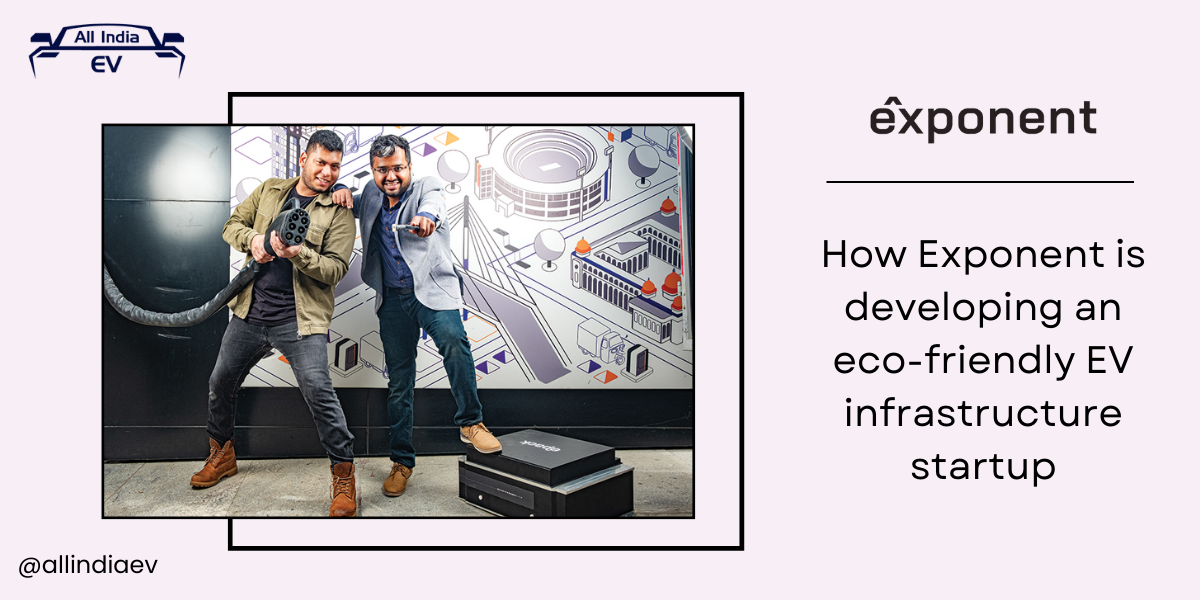How Exponent is developing an eco-friendly EV infrastructure startup
First, people in a country used to cars running on petrol and diesel found electric vehicles (EVs) strange and unfamiliar. It was like they were from another planet. Second, the EVs didn’t have trust because they weren’t associated with a well-known brand. Even when EVs started seeming reliable, the idea that an EV could be better than traditional fuel vehicles in terms of technology, speed, comfort, efficiency, and quality seemed unbelievable.
“Trying out EVs was seen as a guaranteed failure,”
-Vinayak remembers
Third, in big cities where you could easily find petrol stations, the lack of charging stations for EVs made people think that EVs wouldn’t work in India. The common question was, “Where and how will you charge?” However, Vinayak and his team were focused on making progress. Six years later, there was no doubt that EVs were successful. By 2020, Ather would have become a leader in providing high-quality EVs.
Towards the end of 2020, Vinayak started looking at the second part of the issue: the egg. Even though electric cars were seen on the roads and people wanted to buy them, they weren’t widely used. The interest and desire didn’t turn into actual use. Vinayak realized the problem was not just the cars but the whole system for powering them. People had three big questions: Where do I charge my car? How much time will it take? And how long will my car battery last? But there were no clear answers to these questions.
“That triggered us to start Exponent Energy,”
says Vinayak, who along with Sanjay Byalal, co-founded the energy-tech startup in October 2020., along with Sanjay Byalal, co-founded the energy-tech startup in October 2020
Despite finding the egg, Vinayak found it difficult to hatch.
“Again, nobody believed us when we said that we would charge vehicles in 15 minutes,”
grinned the co-founder and CEO of Exponent, a company that raised $5 million in December 2021 for its pre-Series A fundraising round and began doing business in March 2023.
If fast charging technology and batteries seemed like something out of a fantasy book, there was another issue that had grown to be unbelievable: Could the EV charging industry ever turn a profit? Well, if it was going to turn a profit, then a large number of cars needed to be charged quickly, and fast charging was the only way to do it.
Fast forward to November 2023. Vinayak reckons that he has successfully hatched the egg. Exponent’s battery packs, charger and connector, he claims, can rapidly charge EVs in 15 minutes. What has also grown rapidly is a long list of backers—Lightspeed, YourNest VC, 3one4 Capital, AdvantEdge VC, Motherson Group, and the family office of Pawan Munjal—who have pumped in $18 million so far in the startup. Exponent, which started from Bengaluru, has now expanded to Delhi NCR and plans to foray into Mumbai, Hyderabad, Chennai and Ahmedabad by the end of this fiscal.
“Our first set of investors took a big bet on the team and our track record at Ather,”
-says Vinayak
“The team has a distinctive grasp on their business model,” says Sunil Goyal, managing director at YourNest Venture Capital. He emphasizes that the co-founders concentrated on creating an energy company that was intended to address a significant issue for consumers, fleet operators, OEMs, and providers of charging infrastructure.
-Supporters of Exponent
“They envisioned that their products will create substantial value for all players in the ecosystem,” he says, adding that even though there was a high risk of failure, he was confident that the founding team could accomplish the goal of a 15-minute rapid charge.
Content Credit: forbesindia

